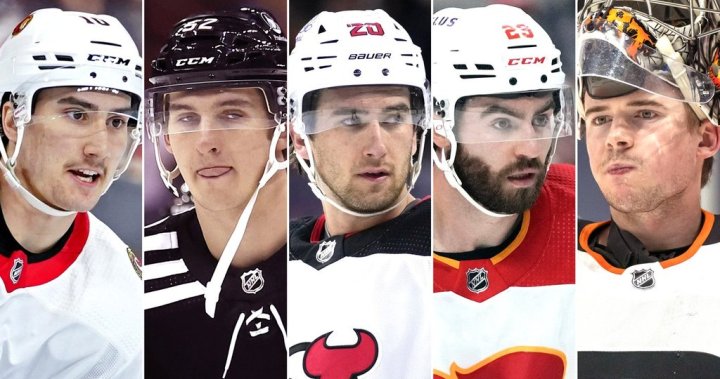The London, Ontario courtroom fell silent yesterday as prosecutors played several hours of police interviews with Alex Formenton, one of five former Hockey Canada players facing sexual assault charges. I watched as jurors leaned forward, straining to catch every word of these critical recordings from 2018.
“I didn’t do anything wrong,” Formenton repeatedly told investigators in the video, his voice occasionally cracking with emotion. These interviews, conducted six years ago following allegations from a woman known as E.M. to protect her identity, now form a central pillar of the Crown’s case against the former hockey players.
Detective Sergeant Katherine Dann led the questioning visible in the recordings. Her methodical approach revealed the prosecution’s strategy – establishing inconsistencies between the players’ accounts of what happened that night in June 2018.
The trial has entered its third week with unexpected revelations emerging daily. E.M. alleges she was sexually assaulted in a hotel room after meeting the players at a gala celebrating their world junior championship victory. All five defendants – Carter Hart, Michael McLeod, Cal Foote, Dillon Dubé and Formenton – have pleaded not guilty.
Court documents I’ve reviewed show investigators gathered over 300 hours of interviews and statements during their initial investigation. That investigation was closed without charges in 2019, then dramatically reopened in 2022 following public pressure and new evidence.
“These interviews represent crucial moments where the accused had opportunities to provide their versions of events,” explained Megan Savard, a criminal defense attorney who specializes in sexual assault cases but isn’t involved with this trial. “Juries often pay special attention to a defendant’s earliest statements.”
The courtroom dynamics yesterday highlighted how these recordings might influence the proceedings. Justice Johanne Morissette interrupted playback several times to ensure proper technical quality, acknowledging their significance to both sides.
Kayla Goodfield, spokesperson for Ontario’s Ministry of the Attorney General, confirmed that the interviews had been sealed until now. “The release of these recordings within the trial context follows strict evidentiary protocols to ensure their admissibility,” she told me in an email.
I spoke with legal experts about the unusual aspects of this case. “The group nature of the allegations creates unique challenges for both prosecution and defense,” said David Butt, a Toronto lawyer who frequently represents sexual assault complainants. “Each defendant has their own narrative to present, which can strengthen or undermine the others.”
The London Police Service has faced scrutiny over its handling of the initial investigation. Documents obtained through freedom of information requests show the department received criticism for not pursuing charges in 2019. Police Chief Thai Truong acknowledged last month that “evolving best practices in sexual assault investigations” informed their decision to reopen the case.
The trial has sparked nationwide discussions about athlete culture and accountability. Hockey Canada lost major sponsorships following revelations it used a special fund to settle sexual misconduct claims. The organization has since implemented new governance structures and mandatory respect training for all players.
Dr. Kristy Everett, researcher at the University of Toronto’s Centre for Sport Policy Studies, sees broader implications. “This case represents a significant moment in how we address allegations of sexual violence in elite sports,” she said. “The outcome will likely influence reporting mechanisms and organizational responses across the sporting world.”
Yesterday’s proceedings also included testimony from the hotel’s security staff who interacted with E.M. and the players that night. Their accounts of the woman’s demeanor before and after the alleged assault could prove crucial in establishing timeline and consent issues.
The Crown is expected to continue playing police interviews today, with McLeod’s statements next. Court filings indicate his interview lasted nearly five hours, the longest among all defendants.
As this high-profile case continues, legal observers note its potential precedent-setting nature. “The decision to prosecute years after an initial investigation was closed is unusual,” said criminal law professor Deborah Cantrell from McGill University. “It speaks to changing societal expectations around sexual assault allegations, particularly involving high-profile individuals.”
The trial is scheduled to continue through mid-June, with defense teams expected to begin presenting their cases next week. Whatever the outcome, this case has already transformed how sporting organizations handle allegations of sexual misconduct, with Hockey Canada’s complete governance overhaul serving as just one example.
For now, the courtroom remains focused on these police recordings – voices from 2018 that echo with renewed significance in 2024.






